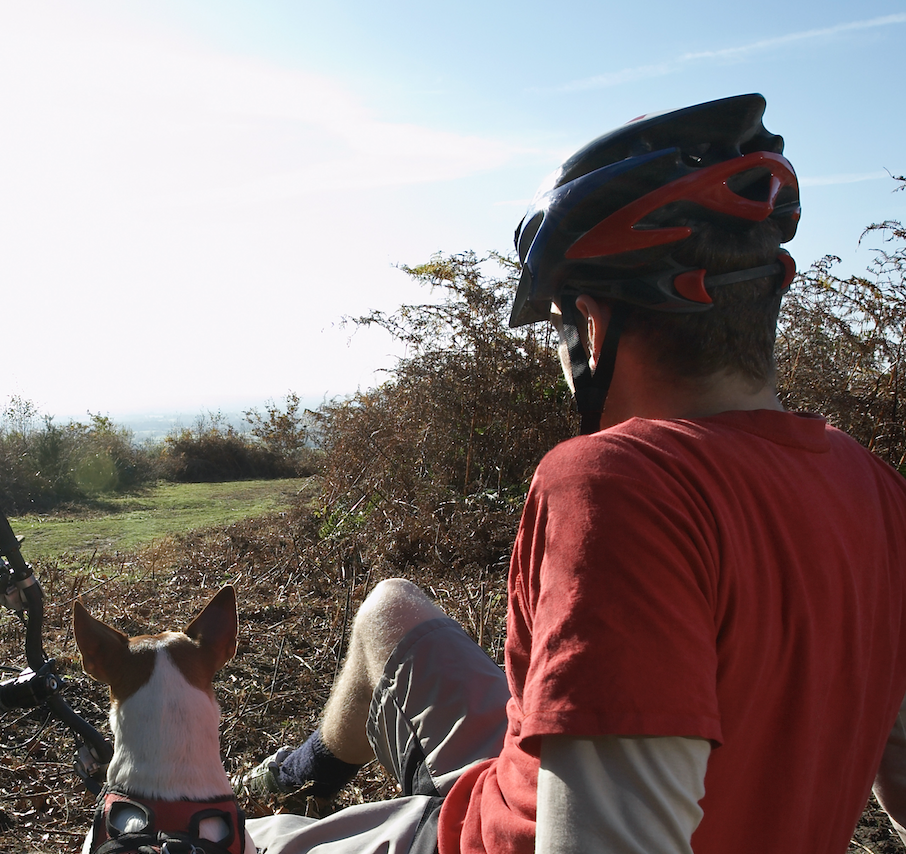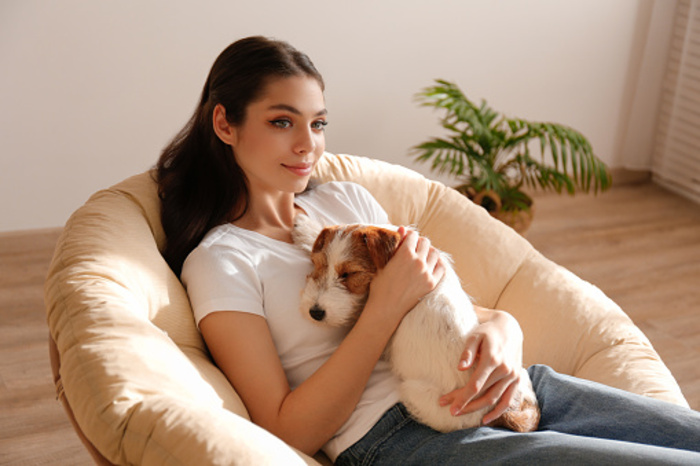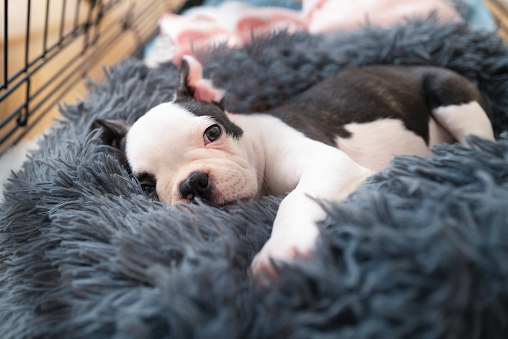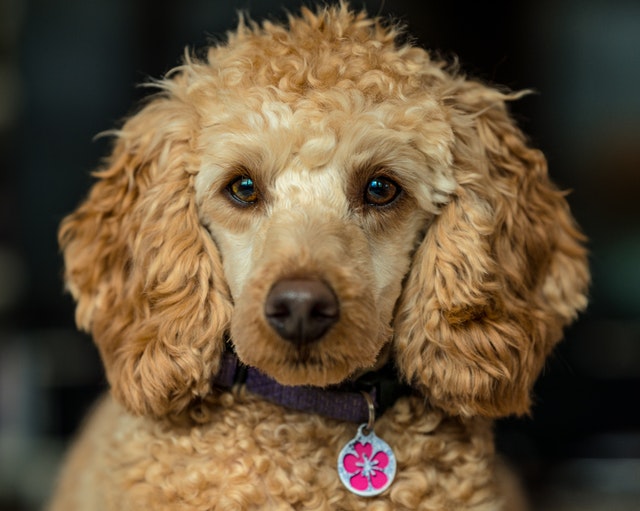
We and our pets have a lot in common, and we do not refer only to generalized things such as “we both feel happy and sad”. Dogs just like humans experience the world consciously using their senses. Similarities can be noticed even in physiological events...such as hiccups.
When a person is hiccuping, we know that this can occasionally happen and there is nothing to worry about. What about our pets? Is it normal if our dog is hiccuping, or should we be worried?
What Are Hiccups?
Hiccups are involuntary spams of the diaphragm. Due to these spasms the glottis (the middle part of the larynx where the vocal cords are located) closes fast, which produces a specific “hic” sound.
Although the actual reason for the hiccups remains unknown, it is believed that it might be related to the time when the uterus was still developing. Hiccups were supposed to help the fetus learn to breathe. This explains why hiccups are more common in pups than in older dogs.
Of course there are also theories that try to explain this physiological event i.e. through hiccups pups are likely to relieve their upset stomach.
Causes for Hiccups
The most common cause of dogs having hiccups is eating or drinking too fast, as that way they also gulp air.
Another common cause of hiccups in dogs is stomach problems. If your pup is intolerant to certain food and its stomach gets irritated, diaphragm contractions may occur. This can be explained by the location of the stomach which is near the diaphragm.
Stressful factors, as well as over-excitement, may also cause hiccups.
If your dog has persistent hiccups these might be a sign of underlying health conditions such as brain, respiratory, kidney, or gastric problems, pericarditis, hypothermia as well as for the presence of certain parasites. Typically, if an underlying health condition is present, this is likely to be accompanied by symptoms such as vomiting, fatigue, coughing, and diarrhea.
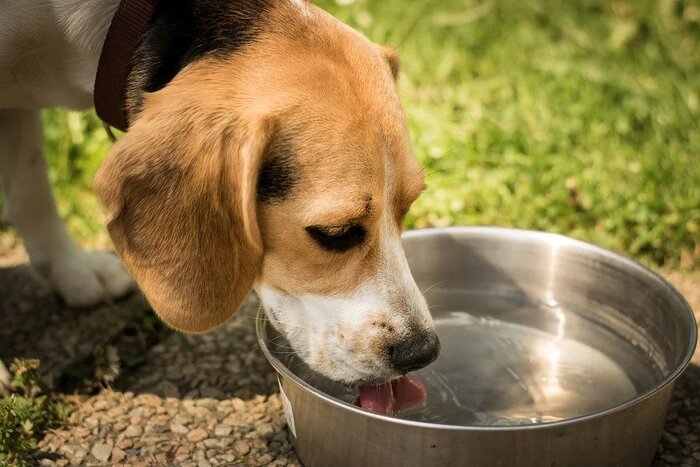
How Can You Deal with Hiccups?
In most cases, you do not have to do anything about it, as it will stop on its own. However, if the hiccups do not stop on their own, there are a few things you can do to help your dog deal with them.
Since one of the common causes of hiccups in dogs is eating too fast, you can divide your paw friend’s food into small portions, so that he/she can not swallow too much food too fast. You should make sure that you do not overfeed your dog, as this might lead to many health problems. A balanced and a healthy diet as well as providing the food in small portions, will positively affect your paw friend’s health. Also, you may want to create a feeding routine, so that your paw friend will learn what time of the day he/she will get food and not try to quickly swallow any food available in the house (even food that is not safe for him/her).
Another useful thing you can do is to rub your dog’s belly, while he/she is laying on his/her back. This approach is likely to help him/her get back his/her regular breathing. If this approach does not seem to work, you can take your dog for a walk or give him/her an easy exercise, that will help their breathing get back to normal. However, you should avoid giving your dog demanding exercises right after feeding time and let him/her rest.
Similar to humans, drinking water can help your paw friend stop hiccuping. However, in this case, you should supervise him/her to make sure that he/she is not drinking too fast. We would recommend that you use a bowl that is deep and wide enough so that your pup can drink water without problems.
Adding a maple syrup or a small spoon of honey to your paw friend’s water can smooth your canine’s throat. You should ensure that you do not add too much sweetness and that it does not contain xylitol, raisins or chocolate.
If the hiccups are persistent, you should consult your veterinarian. It is important that you bring your dog to regular veterinarian checks based on his/her age, breed and lifestyle. Pups need to go through monthly checks until they reach the age of 5-6 months, while adult dogs should be examined at least once a year. Since certain breeds are prone to specific health conditions, you may want to get professional advice in regard to this matter. When it comes to lifestyle- dogs, who spend much time outdoor and are greedy, are more likely to quickly swallow something (even non-edible items) when unsupervised. Also they have a higher tendency to get parasites, which may also lead to hiccups.

What You Should Not Do?
Do not try to scare your dog. This might cause more stress than actually bring a positive result.
Hiccups Based on the Dog Age
As we mentioned above, puppies are more likely to have hiccups than adult dogs, as they usually swallow the food too fast and get overly excited much easier.
In order to prevent this physiological event from occurring often (it may occur occasionally), you should socialize your pup and train him/her in basic obedience while he/she is still young. That way he/she will learn to control his/her impulses and focus on you, instead of any factors in the surroundings, that may cause stress or hyper-excitement. Short sessions, lots of praising, and giving treats (in a reasonable amount) will help you keep your doggy motivated during the training sessions.
Talking to your pup in a happy but calm voice, massaging him/her, playing him/her classical music... You can apply all these techniques on a daily basis to calm your pup down as needed.
Breeds That Are More Prone to Hiccups
Short-muzzled breeds such as the Pug, the Boston Terrier, the Boxer, the Shih Tzu, the Lhasa Apso, the Bulldog...etc., are much likely to have hiccups due to their genetic features. Their short muzzle obstructs the airflow access, which may cause hiccups.
In general, we would say that occasional hiccups are quite normal, and you should not worry. However, you should still keep track of your dog’s health and try to develop a healthy routine while he/she is still young. If hiccups occur on a regular basis, especially if they are continuous, you should consult a veterinarian.



